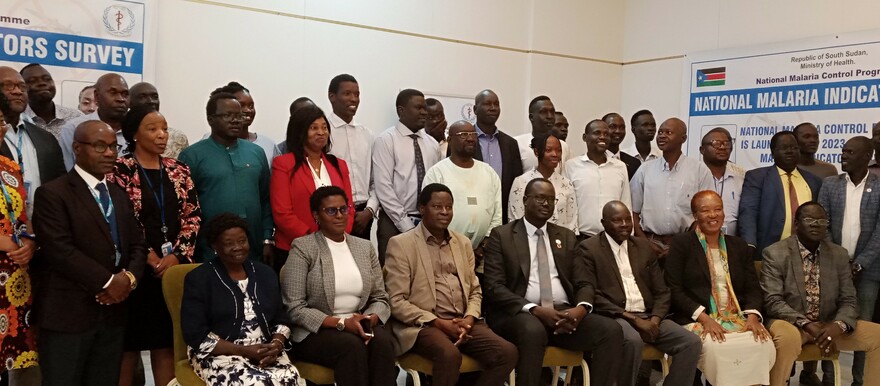South Sudan’s Ministry of Health on Monday launched the Malaria Indicator Survey (MIS) that will provide the latest statistics on the prevalence and transmission patterns of the disease as well as its prevention countrywide.
A one-month survey under the theme, “Together Let Us Improve Malaria Control,” will target women of child-bearing age and people aged 15-49 years in approximately 506,000 households nationwide.
Speaking during the launching ceremony held in Juba on Monday, Dr. Ader Machar Achiek, Undersecretary of the National Ministry of Health, said the data will help the ministry to fast-track efforts to eliminate malaria.
“It is a fact that malaria is preventable and treatable; every malaria case in South Sudan is preventable, and therefore, every malaria death is unacceptable, and yet malaria continues to kill our people, and we are not happy about that, and that is why we collected our efforts to see this MIS is done and to assess ourselves for a better planning and intervention,” said Machar.
He said the survey would also provide data on current malaria intervention, including mosquito net distribution. “From community data collected in 2017, 48 percent of household populations are reported to have slept under a mosquito net the previous night. From 2022 to data alone, the ministry has distributed close to 4 million net to the communities, and there is an outstanding of 3 million not distributed, which puts the huge task on us to fulfill that,” he said.
For her part, Dr. Mutale Nsakashalo, World Health Organization Technical Officer in South Sudan, said the survey data and results will inform the country’s policy direction.
“Let me just reiterate the WHO commitment to supporting all the efforts in combating malaria in South Sudan, and I ask everyone to embrace the Malaria Indicator Survey; let us all participate in it collectively so that it the end of it, we have data and result that is going to inform our policy direction in South Sudan,” said Nsakashalo.
According to the ministry, malaria remains one of the leading killer diseases in the country. It accounts for 67 percent of outpatient consultations, 10 percent of admissions, and 50 percent of deaths.
Children under five and pregnant women remain at high risk because of low immunity against the disease.




